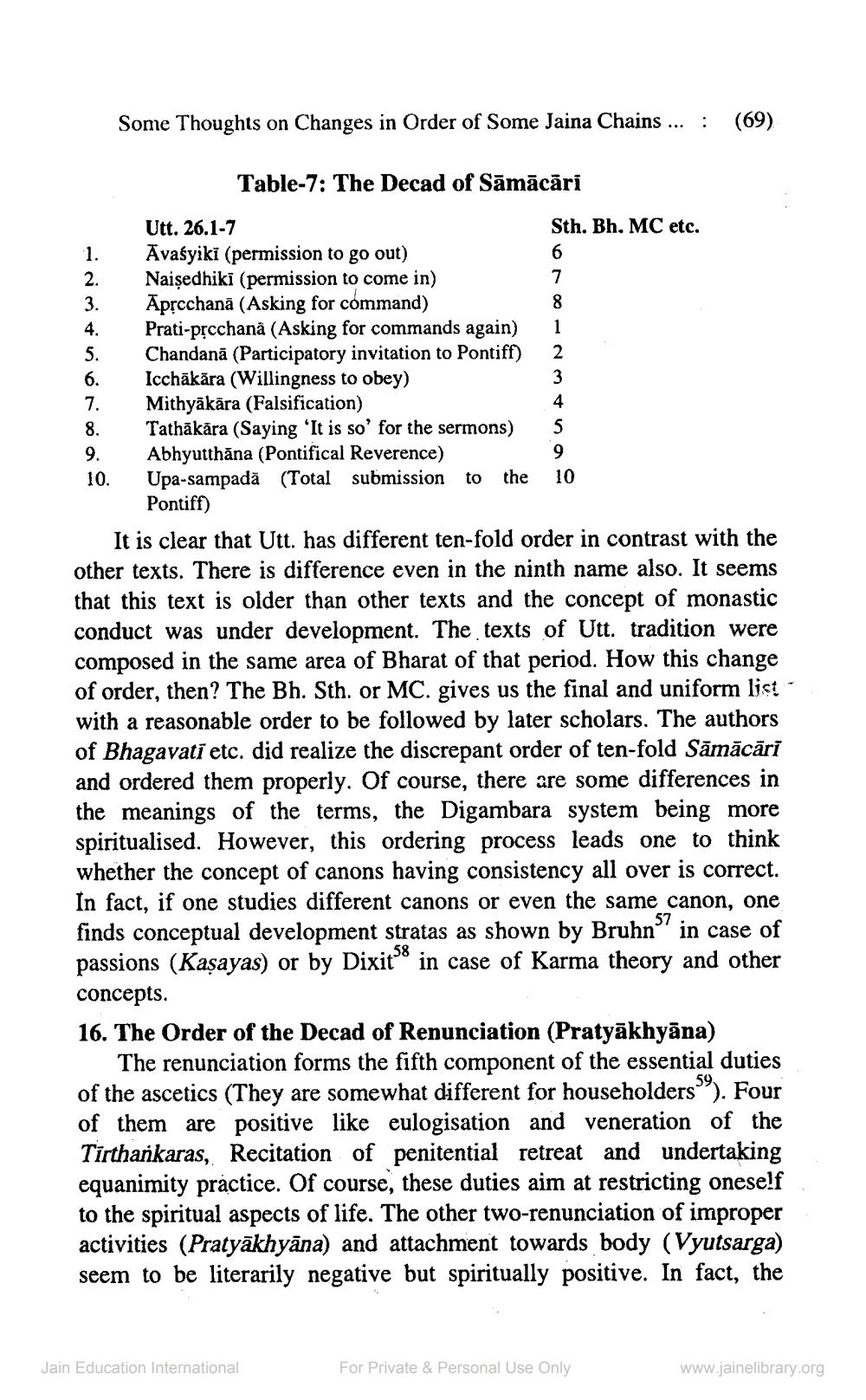________________
1.
2.
3.
4.
5.
6.
7.
8.
9.
10.
Some Thoughts on Changes in Order of Some Jaina Chains... : (69)
Table-7: The Decad of Samācāri
Utt. 26.1-7
Avaśyiki (permission to go out)
Naisedhiki (permission to come in) Apṛcchana (Asking for command) Prati-prcchana (Asking for commands again) Chandana (Participatory invitation to Pontiff) Icchäkära (Willingness to obey) Mithyäkära (Falsification)
Tathākāra (Saying 'It is so' for the sermons) Abhyutthāna (Pontifical Reverence) Upa-sampadă (Total submission to the Pontiff)
Sth. Bh. MC etc.
6
7
8
1
2
3
4
5
9
Jain Education International
10
It is clear that Utt. has different ten-fold order in contrast with the other texts. There is difference even in the ninth name also. It seems that this text is older than other texts and the concept of monastic conduct was under development. The texts of Utt. tradition were composed in the same area of Bharat of that period. How this change of order, then? The Bh. Sth. or MC. gives us the final and uniform list with a reasonable order to be followed by later scholars. The authors of Bhagavati etc. did realize the discrepant order of ten-fold Sāmācārī and ordered them properly. Of course, there are some differences in the meanings of the terms, the Digambara system being more spiritualised. However, this ordering process leads one to think whether the concept of canons having consistency all over is correct. In fact, if one studies different canons or even the same canon, one finds conceptual development stratas as shown by Bruhn in case of passions (Kaṣayas) or by Dixit in case of Karma theory and other concepts.
58
16. The Order of the Decad of Renunciation (Pratyākhyāna)
The renunciation forms the fifth component of the essential duties of the ascetics (They are somewhat different for householders"). Four of them are positive like eulogisation and veneration of the Tirthankaras, Recitation of penitential retreat and undertaking equanimity practice. Of course, these duties aim at restricting oneself to the spiritual aspects of life. The other two-renunciation of improper activities (Pratyākhyāna) and attachment towards body (Vyutsarga) seem to be literarily negative but spiritually positive. In fact, the
For Private & Personal Use Only
www.jainelibrary.org




